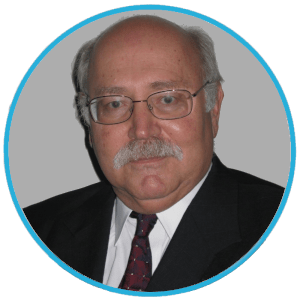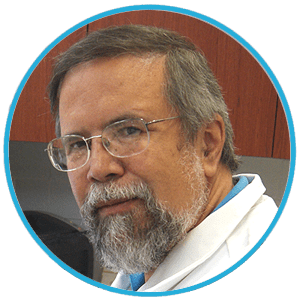Panel discussion: trends in the development of biosimilars
A biosimilar is a subsequent version of an innovator biologic product. Biosimilars are characterized as having the same amino acid sequence as the originator therapeutic and nearly identical pharmacokinetics and biological activity. The US FDA states that a biosimilar should have no clinically meaningful differences from an existing FDA-approved reference product.
The demand for cheaper biotherapeutics has driven more research laboratories to develop biosimilars. While biosimilars have the potential to provide treatment at a lower cost, development can be costly and take between 5–9 years. In this panel discussion, we will review the common trends in the development of biosimilars, different analytical techniques utilized to demonstrate biosimilarity and key technical challenges when developing biosimilars.
- Analytical techniques used to demonstrate biosimilarity
- Key technical challenges when developing biosimilars
- Regulatory challenges for biosimilar approval
- Thoughts on what the future holds for biosimilar development
Who may this interest?
- Pharmaceutical professionals
- Research scientists
- Biotechnology experts
Speakers

Rob Nelson
LabCorp Drug Development (Geneva, Switzerland)
Dr Robert Nelson is an Associate Director with Labcorp Drug Development’s Science and Innovation team, focused on partnering with clients and internal staff to solve bioanalytical technology, scientific and regulatory issues, from discovery through post-market approval. Previously, Rob served as Section Head, Bioanalytical Sciences, Exploratory Science & Translational Medicine, Novimmune SA (Geneva, Switzerland) where he was responsible for delivery of product-specific bioanalytical endpoints for nonclinical and clinical studies, including pharmacokinetic, pharmacodynamics, biomarker and immunogenicity endpoints. Building on his more than 15 years of biological and analytical research experience, Rob is a Steering Committee member for the European Bioanalysis Forum, a Lecturer at the University of Geneva, and has authored or co-authored numerous peer-reviewed publications, abstracts and posters. Rob received his BS in Pharmacology and his PhD in Molecular Physiology from the University of Edinburgh (Edinburgh, Scotland).

Joseph P Fuhr
College of Population Health Thomas Jefferson University (PA, USA)
Dr Joseph P Fuhr, Jr is a lecturer at College of Population Health Thomas Jefferson University and retired professor of economics at Widener University (PA, USA). He currently serves as a senior fellow with The American Consumer Institute and Ambassador for the Internet Innovation Alliance. Dr Fuhr received his MA and PhD from Temple University (PA, USA) and his BA from LaSalle University (PA, USA). His primary research areas are antitrust, health economics, pharmacoeconomics, telecommunications and sports economics. In healthcare, he has written on ACOs, hospital mergers, specialty hospitals, exclusive arrangements, health insurance, bundling and doctor’s fees. In pharmacoeconomics, he has written on cost benefit analysis, biosimilars and predictive modeling. He has published more than 60 journal articles, of which 10 are on biosimilars. Professor Fuhr has been an expert witness on numerous cases and has worked on various consulting projects.

Gilberto Castañeda-Hernández
Principal Investigator in the Department of Pharmacology of the Center for Research and Advanced Studies of the National Polytechnic Institute (Mexico City, Mexico)
Gilberto Castañeda-Hernández is a Principal Investigator in the Department of Pharmacology of the Center for Research and Advanced Studies of the National Polytechnic Institute (Mexico City, Mexico). He is a member of the National Academy of Sciences and the National Academy of Pharmaceutical Sciences of Mexico. He was a member of the Council of Clinical Pharmacology of the International Union of Basic and Clinical Pharmacology between 2004 and 2014. At present, he is Editor-in-Chief of the Latin American Journal of Clinical Sciences and Medical Technology.
In association with

